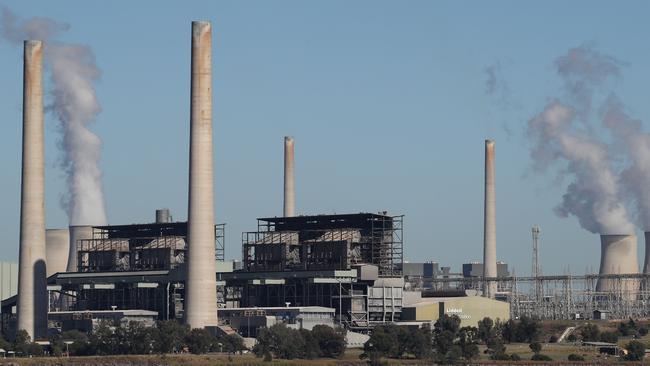
The EU’s carbon border tax poses almost no immediate threat to Australia’s exports but it does highlight the growing gulf between Australia and its European trading partners on carbon policy.
On a first reading, the EU carbon border adjustment mechanism is far more limited than feared. It applies directly to only a limited number of commodities and the tyranny of distance means only a minority of Australia’s exports of any of those commodities go directly to Europe.
On face value, it looks like a genuine attempt to implement the EU’s stated goal of protecting its efforts to reduce carbon emissions, without risking heavy industry fleeing to jurisdictions that won’t impose the same carbon constraints. With the introduction of tariffs not due until 2026, there’s plenty of time to prepare.
Yet the EU plan will force hard thinking in Australia’s resources majors ahead of its introduction.
Scott Morrison’s “technology over taxes” carbon reduction mantra flies directly in the face of EU policy and would make Australia a prime target for tariffs.
Australian iron ore and coking coal exports won’t be much affected because they go mostly to Asia, but the steel China makes from Australian ore and coal will face tariffs, as could a million other manufactured goods made from Australia’s resource riches.
And the threat becomes more real if the idea spreads.
That is looking more likely, given US Democrats this week proposed their own version of a carbon border tax, as part of a $US3.5 trillion ($4.7 trillion) budget plan. It looks to be a simple way for Democrats to marry the protectionist populism of former president Donald Trump with Joe Biden’s climate policy goals.
The EU and US proposals suggest moves towards a global carbon price are gathering pace. What impact will those tariffs have on the decision of global manufacturers about where they source their raw materials or what price they are prepared to pay? That will take time to play out.
Under the EU plan, non-EU producers could get tariff deductions if they have paid a carbon price elsewhere. If that flows to raw materials, Australia’s lack of concrete carbon targets and reduction measures could threaten the value of our resource exports.
Resources majors such as BHP and Rio Tinto are telling shareholders what will happen to the value of their assets if a global carbon tax is imposed – and investing heavily to reduce their own direct emissions as a result. Whether they should be doing more is a matter of debate, but they are at least planning for the introduction of a global carbon tax.
It’s probably time the Australian government caught up to corporate Australia and faces up to the reality of world in which the richest consumer economies want to tax carbon, rather than standing on the beach trying to push back a turning tide.



